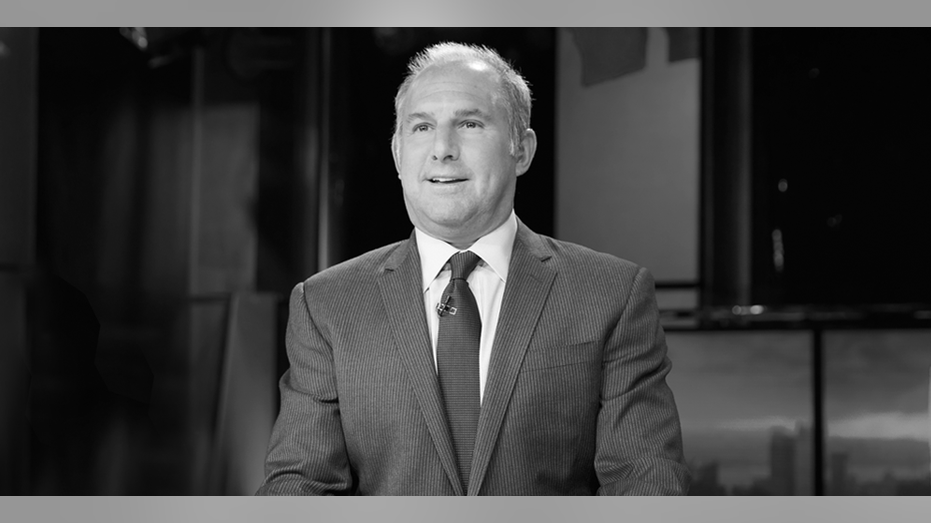Long-Term Investing Ideas After Brexit: Gary Kaminsky

Legendary investor George Soros issued a warning prior to the Brexit referendum that if Great Britain voted to leave Europe, disintegration of the EU would be practically irreversible. Indeed waking up early Friday morning after the vote I felt shades of the global financial crisis. The EU, like the housing bubble, is a house of cards. Once the cat is out of the bag, once the first party to the agreement flinches, it’s a matter of time before the reset button is pushed.
Hedge fund manager Eric Peters, a guest on Wall Street Week and author of the widely-read Weekend Notes newsletter, summed up the outcome well: “When the U.K. voted to leave Europe, after decades of prosperous global integration, the world’s fifth largest economy, a leading democracy, stepped back – and that really matters.”
Despite the potentially negative long-term ramifications of Britain’s departure from the EU, British and American stocks were able to recover their post-Brexit losses within a matter of days. That’s because the Brexit will not alone cause a crisis. It is not akin to the summer of 2008, as many TV pundits suggested amid the historic volatility immediately following the decision. It is not a Lehman moment. But the Brexit could very well be the summer of 2007 on a smaller scale. When two highly-levered Bear Stearns structured credit hedge funds collapsed, it was a harbinger of things to come; the canary in the coal mine, the calm before the real storm.
The EU as we know it appears to be at the beginning of radical change. With the region teetering on the edge of the deflationary abyss, a withdrawal of economic coordination could be the straw that breaks the camel’s back. Time will tell, but as I mentioned on Wall Street Week the next morning, the vote marks the beginning of this next EU chapter, but perhaps not the end of the union as many suggested.
You’ve likely read dozens of ad hoc history lessons on the EU and hot takes on why the British people voted to leave, so I’ll spare you further analysis on a topic I know relatively little about. But as an experienced portfolio manager, I can explain what Britain’s vote to leave the EU means for your long-term savings.
One of my great mentors in the investing business and a former partner at Neuberger Berman, the late Joe Lasser, used to always say, “When you rely on the research of others, you only know what they know, and it’s always what they don’t know that hurts you.” As a portfolio manager, it’s important to take stock of what you do know and what you don’t, what matters for your money and what doesn’t.
Let’s start with what we don’t know and what doesn’t matter. We don’t know what the U.K.’s divorce from the EU is going to look like. We don’t know what the Brexit means for the future of the EU, or what it will do to short-term economic performance in the region. We don’t know the long-term effect it will have in global currency markets. And we don’t know if it will have any carryover effect to American politics or societal dynamics. Investors are left with the fool’s errand of trying to speculate on the next chapter of uncertainty. Guessing is for newsletter writers, global strategists, bloggers and talking heads – not long-term investors.
Now, more importantly, let’s cover what we do know and what matters to our portfolios. The Fed, ECB and Bank of England have all wanted cover for not raising rates and perhaps increasing monetary stimulus. Now they have it. We know we are in a low-growth world, with interest rates set to stay very low for longer than anyone anticipated (except perhaps those who have studied Japan over the last 30 years). I have been very vocal on this topic since 2008. A well-deserved shout out on this topic is in order to my good friend and Wall Street Week guest Jeffrey Gundlach. No one in the business has been more right on rates then Jeffrey in the last decade.
There are some businesses, such as financial institutions, that rely on net interest margin for profits. They will be the biggest losers from the Brexit. However, there are plenty of solid companies that can cope in a low interest-rate world, and those are the ones in which you should look to continue investing.
The current environment makes me think back to an op-ed I wrote in 2010 called “Kaminsky's Call: Let This Stock Feed Your Inner Yield Hog” in which I made a bullish call on Public Storage (PSA), a so-called boring real estate investment trust (REIT) that at the time was trading at $98. Back then, the 10-year U.S. Treasury was yielding just under 3%, while Public Storage’s dividend paid 3.25%. It was, and is, a predictable, steady business with strong organic growth and fundamentals. Its board of directors has a record of prioritizing the return of capital to shareholders. When companies earn cash, you want to see them prioritize dividends and responsible reinvestment, rather than hoard, buy back shares and pursue M&A, which is destructive to long-term value 90% of the time.
I go back to this example because Public Storage is not the type of company the business media likes to cover. The story isn’t sexy and doesn’t change hour to hour. I spent many a morning arguing with TV producers who wanted to talk about Apple (NASDAQ:AAPL) every day, asking why we couldn't add more value for our viewers by discussing opportunities like PSA. But let’s be honest – boring stocks don’t garner the same ratings as momentum darlings like Amazon (NASDAQ:AMZN), Netflix (NASDAQ:NFLX), Tesla (NASDAQ:TSLA) or Facebook (NASDAQ:FB).
A stock like Public Storage may not always go up 150% in six years, but it is the type of company you want to own for the long-term because of the benefits of compound interest. Today the stock is trading at $255, which doesn’t account for compounded dividends. Despite the significant price appreciation, the stock still yields a healthy 2.8% per share.
My middle son Tommy often repeats back to me an over-simplified but valuable example about compound interest. Would you rather start with a penny and have it doubled every day for a month, or receive $10,000 a day for 30 days? Most people would opt for the sure thing, a guaranteed $300,000 payment. But a penny doubled every day for a month yields $5.4 million dollars.
For equities as an asset class, between 50% and 65% of portfolio gains over long periods of time are the result of dividends and distributions reinvested, not price appreciation. In a world where investment-grade fixed income is basically yielding nil and has significant duration risk, businesses with steady cash flow streams and a commitment to returning cash to shareholders become even more attractive.
On any given day I receive dozens of investment letters and research notes in my inbox, but I only read a few on a regular basis. Following the Brexit, I’ve read almost every single one every single day. I need to know where the herd mentality is going in order to identify groupthink and potential blind spots. As portfolio managers at Neuberger Berman, we always told the sell side, “we don’t want you to bring in analysts who agree with us on stocks we already own. We want to meet with analysts who disagree with us, who don’t like a stock we own – or like a competitor even better.”
As a long-term investor, I am always taking stock of what I do and don’t know, maintaining a health paranoia about my assumptions. Right now I don’t pretend to know the full implications of the Brexit, but I do have a good handle on the macroeconomic environment. Interest rates are not going higher. Even if the Brexit is the first domino to fall in the breakup of the EU, an event that would weigh even further on weak global growth, people will still need places to store their stuff.
Businesses like Public Storage will continue to thrive. In re-evaluating your portfolio this summer, don’t pay too much heed to the advice of instant experts. Repeat to yourself the core tenants of successful long-term investing that have helped individuals accumulate wealth throughout history.

Gary Kaminsky joined FOX Business Network (FBN) and Fox News Channel (FNC) as a contributor in March 2016. He is also the co-host of Wall Street Week, which airs on Fridays at 8PM/ET.
Kaminsky is a Former Senior Advisor at Morgan Stanley. He joined the company in 2013.



















